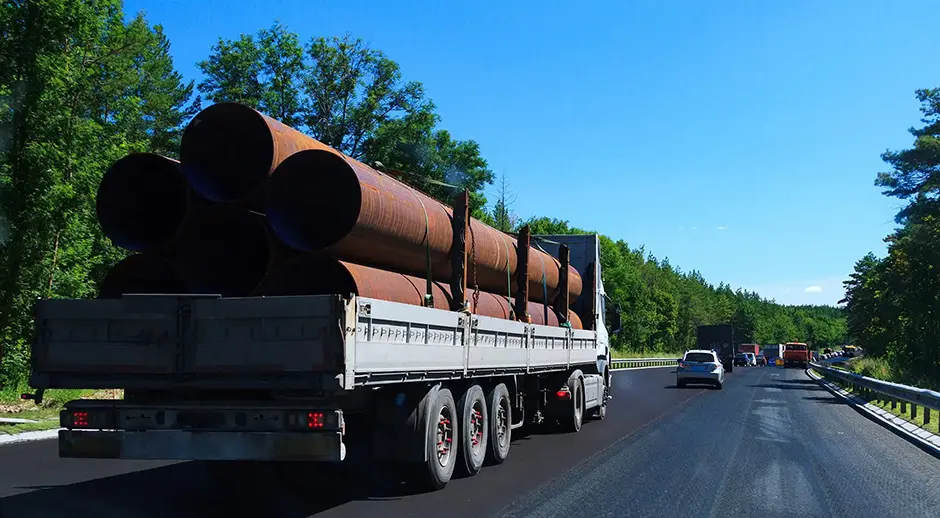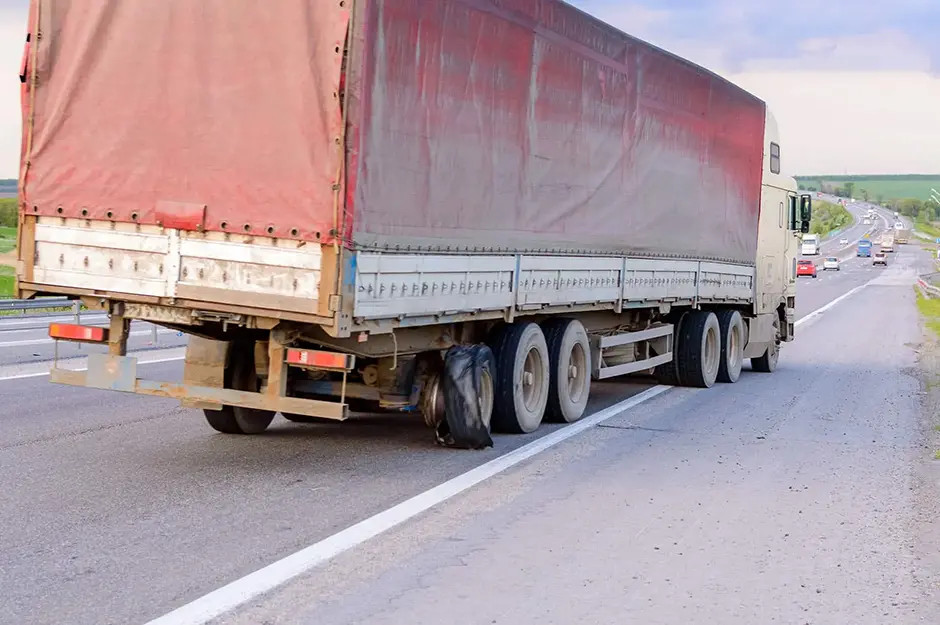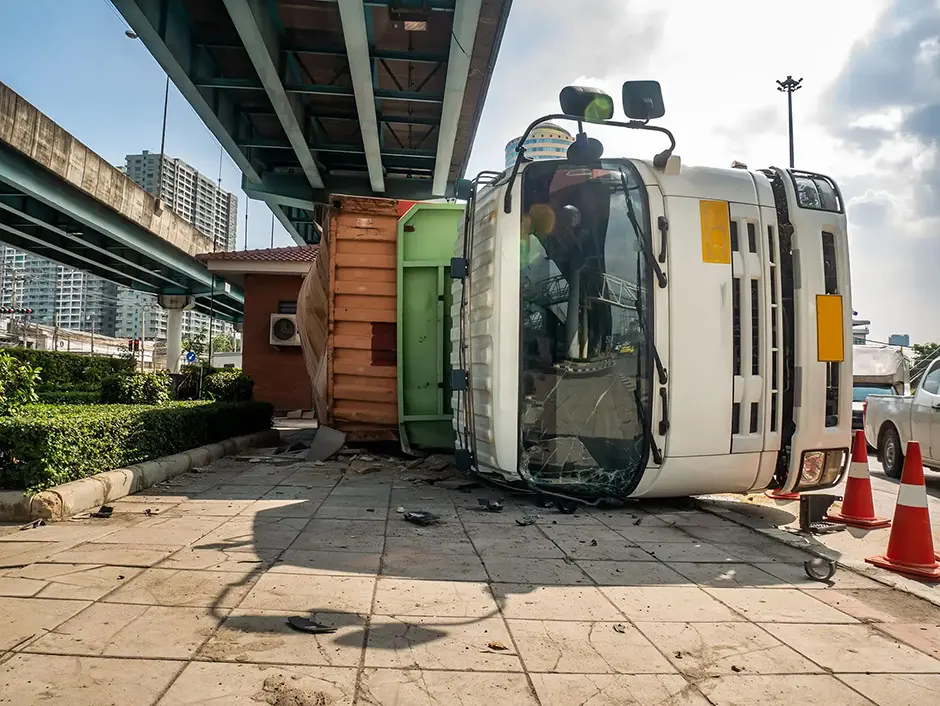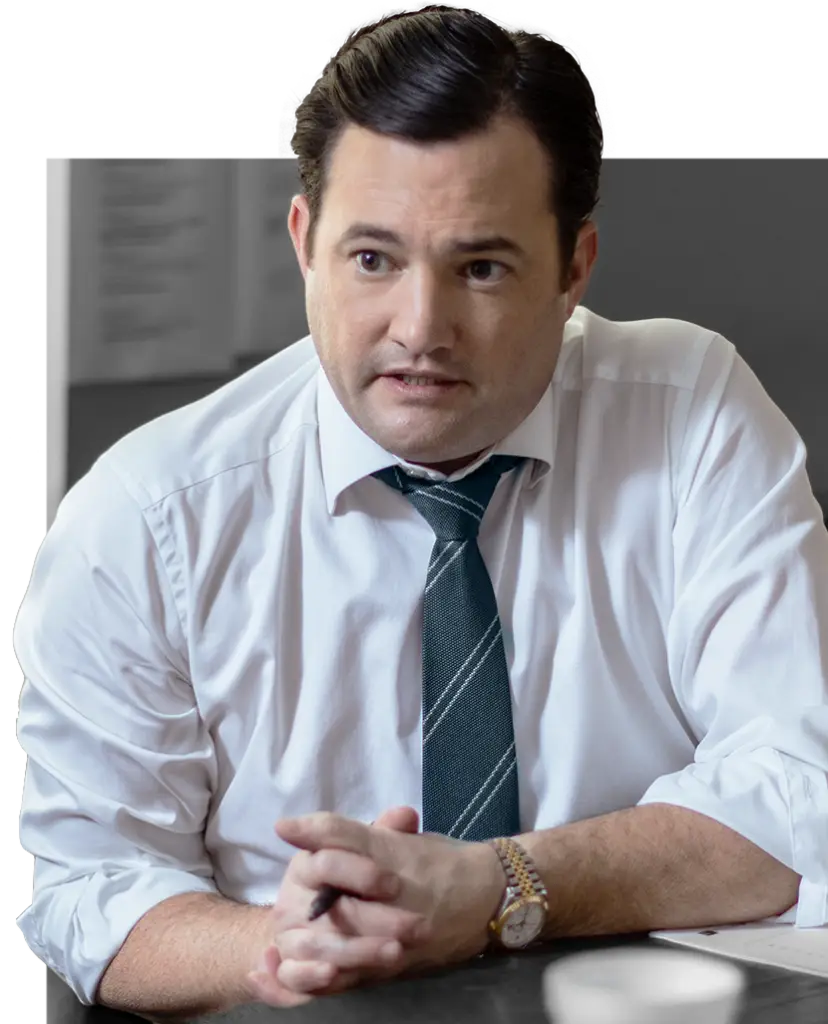
a full service legal team DEDICATED to personal injury
we earned the trust of thousands by doing everything we can to get what they deserve
State and federal regulations set standards for the maximum weight, length, and height of cargo transported on the nation’s roads. While plenty of items can be hauled according to these standards, some can’t. Those oversize loads must be handled according to special rules because they tend to present some unique risks.
When big rigs hauling oversize loads are involved in crashes, victims can turn to the 5-star truck accident lawyers at Morris & Dewett Injury Lawyers for help investigating their crash and recovery. We have helped victims and families just like you stand up to the toughest opponents and win when it matters most. No matter how complex a case may be, our truck accident attorneys will provide relentless advocacy while fighting for the best possible resolutions.
When you need help and legal advice after an 18-wheeler crash involving an oversize load, simply contact Morris & Dewett Injury Lawyers.
We’re here for you, ready to help 27/4.
Any load that is larger or heavier than the maximum size and weight limits for a given road will be considered an “oversize load.” For weight, an oversize load refers to the total weight of the vehicle, rather than per-axle limits (when per axle limits are exceeded, it’s considered to be an “overweight load”).
Generally, oversize loads are items that cannot be broken down into smaller components. Some common examples of oversize loads include:
Tires, engines, brakes, and hitches are just some of the equipment that take a beating while hauling oversize loads. If that equipment isn’t properly maintained, it can fail on the roads under the stress of an oversize load. Similarly, equipment failures can occur due to design defects or manufacturing errors. Either way, truckers can lose control of big rigs, and horrific crashes can happen.
With oversize loads, more weight can rest on the rear axle, making 18-wheelers more difficult to steer. Around corners and curves, that can end up meaning a greater risk of rollovers, especially if the roads are slick, drivers are speeding, or the road slopes downward.
If truckers hauling oversize loads have to stop suddenly or swerve sharply, jackknife accidents can happen. This occurs when the trailer swings out from behind the cab, closing in towards it in the same way a jackknife closes. These crashes often end up resulting in underride accidents, multiple-vehicle wrecks, and death.
These can occur when oversize cargo falls off a trailer because it’s not properly secured or it’s sheered off as a truck travels under an overpass with low clearance. In either case, loads can fall off of tractor trailers, crashing into the vehicles behind the truck.

This and other evidence can begin to shed light on whether load-related issues — like load securement problems or overloaded trucks — may have played a role in your tractor-trailer crash. These items can also highlight when other forms of negligence may have contributed to an 18-wheeler accident.
The point here is that:


If you or a loved one has been hurt in a big rig wreck involving an oversize load, a truck accident lawyer at Morris & Dewett Injury Lawyers can help you determine the causes and your legal options. We can also help you take the right steps to recover and protect your rights when it matters most.
Effective at identifying truck accident causes and proving liability, we know how to secure the maximum available compensation in the toughest cases, and we’re proud to provide the advocacy we would expect in your shoes.
Discover the difference our team can make in your case and recovery by contacting us today.
Wrongful Death Caused By An Impaired Driver In A Commercial Vehicle
Motor Vehicle Accident Involving An Impaired Driver Resulting In Serious Injury
oil field safety violation resulting in severe spinal & brain injury
A commercial vehicle ran a red light causing a collision resulting in serious injury
rear end car collision leading to severe injury
HVAC safety violation resulting in electrocution
Vehicle Safety violation resulting in severe neck & back injury
18 Wheeler Accident Caused A Wrongful Death
Wrongful death caused by commercial vehicle striking a pedestrian
a rear-end collision sent client over guardrail resulting in major injury
18 Wheeler lost load on highway resulting in accident causing serious bodily injury
commercial vehicle accident
18 wheeler failed to stop caused accident resulting in brain injury
Neck & Back injury from a multi-vehicle wreck
aggressive driving caused a motor vehicle accident
18 Wheeler reversed into client
18 Wheeler trailor swung into client causing serious injury
18 Wheeler improper lane merge caused a serious accident
18 Wheeler collision caused severe neck and back injuries
injuries sustained by a multi-vehicle wreck caused by poor driving
motor vehicle accident caused by a motorist running a red light
sexual abuse violation
multi-vehicle rear end collision
driving safety violation resulting in neck and back injuries
motor vehicle accident causing back and brain injury
18 wheeler collision caused a wrongful death
erratic driver caused severe accident by crossing over lanes
A premises liability case with spinal injury
back injury resulting from a motor vehicle accident
wrongful death resulting from rear-end auto accident
wrongful death resulting from a motorcycle accident
commercial vehicle collision
rear-end motor vehicle collision
commercial vehicle accident with a cement truck
sexual abuse violation
commercial vehicle caused a T-Bone collision
rear-end collision caused neck and back injuries
commercial vehicle rear-ended client resulting in spinal injury
18 wheeler rear-ended client causing severe injury
commercial vehicle spilled hydraulic fluid in highway lead to multi-vehicle accident
commercial vehicle ran a read light causing a collision
commercial vehicle spilled hydraulic fluid in highway lead to multi-vehicle accident
Commercial vehicle rear-ended client
Commercial vehicle rear-ended caused multi-vehicle accident
driver safety violation resulted in serious neck injury
Motor vehicle accident caused by driver crossing over lanes into oncoming traffic
a T-Bone motor vehicle collision caused client vehicle to flip and roll
18 wheeler ran a stop sign causing a serious motor vehicle accident
a rear-end motor vehicle accident resulting in serious injury
18 wheeler lost load on highway resulting in serious injury
18 wheeler caused serious accident
a rear-end collision vehicle accident
a rear-end collision vehicle accident
motor vehicle accident caused by illegal passing
medical malpractice causing serious leg injury
Commercial Vehicle lost control of trailer resulting in serious back and neck injury
Crane operator was struck by a falling pole
T-Bone motor vehicle accident
A commercial vehicle failed to yield causing a severe accident
product failure resulted in leg injury
Failure to use lighting on an 18-wheeler log truck caused a serious accident
wrongful death caused by an 18 wheeler accident
motor vehicle accident caused by a failure to yield
motor vehicle accident caused by a rear-end collision
commercial vehicle in reverse collided with client
failure to yield resulted in a serious motor vehicle accident
motor vehicle accident caused by a failure to yield
18 wheeler caused a rollover accident
18 wheeler rear ended client
driving safety violation resulting in serious injury
commercial vehicle rear-ended client while at a complete stop
client vehicle rear-ended at high speed
motor vehicle accident resulted in severe neck injury
commercial vehicle accident
tow truck failed to secure load resulting in severe injury
18 wheeler failed to yield at an intersection
motor vehicle accident caused by a rear end collision
a rear end collision caused by a failure to stop at a sign
a T-Bone collisions resulted in a multi-vehicle accident
commercial vehicle accident
a head-on auto collision
a motor vehicle accident resulting in serious injury

“We focus on being the best at 3 things: preparing hard for our cases, making sure we deliver what clients need, and making sure they are treated well throughout the process.”

"*" indicates required fields

Morris & Dewett, LLC | Copyright © 2024 | All Rights Reserved | Using This Website, Engaging Its Content, or Contacting Morris & Dewett Does Not Create An Attorney-Client Relationship
Licensed to Practice in Louisiana and Texas | Bona Fide Offices in Shreveport, Covington, and Lake Charles, Louisiana
Every Case Is Different, Prior Results Are Not A Guarantee Of Future Success | Site Uses a Combination of Internal and Stock Photography/Videography | Privacy Policy